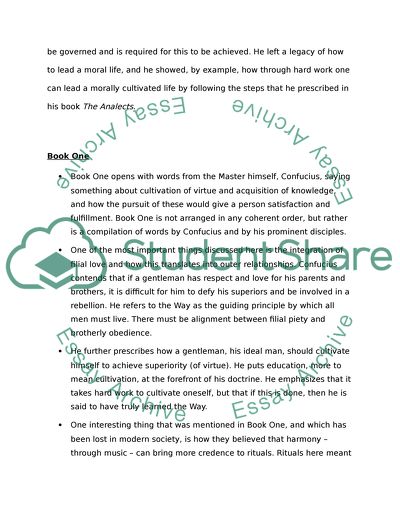Cite this document
(“Confucius Essay Example | Topics and Well Written Essays - 1000 words”, n.d.)
Confucius Essay Example | Topics and Well Written Essays - 1000 words. Retrieved from https://studentshare.org/miscellaneous/1560224-confucius
Confucius Essay Example | Topics and Well Written Essays - 1000 words. Retrieved from https://studentshare.org/miscellaneous/1560224-confucius
(Confucius Essay Example | Topics and Well Written Essays - 1000 Words)
Confucius Essay Example | Topics and Well Written Essays - 1000 Words. https://studentshare.org/miscellaneous/1560224-confucius.
Confucius Essay Example | Topics and Well Written Essays - 1000 Words. https://studentshare.org/miscellaneous/1560224-confucius.
“Confucius Essay Example | Topics and Well Written Essays - 1000 Words”, n.d. https://studentshare.org/miscellaneous/1560224-confucius.


